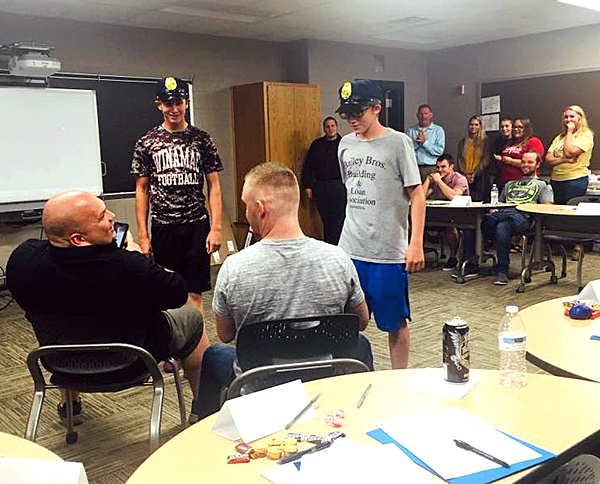
The training was led by Deputy Foerg from the Pulaski County Sheriff’s Office and Lt. Brian Lowe from the Tippecanoe County Sheriff’s Office.
Officers learned about youth brain development, the impact of mental health and trauma on the youth brain, how to better work with juvenile behavior, understanding generational culture and other challenges that impact youth behavior in regard to interactions with law enforcement.
“This intensive two-day training provides a tremendous amount of education about the youth brain. Many who participated learned about why kids and teens respond the way they do in emotional/stressful situations,” said Dr. Natalie Daily-Federer, Juvenile Detention Alternative Initiative (JDAI) coordinator for Pulaski County. “This program is part of our JDAI initiative in helping to further develop juvenile alternatives and preventive programming in our community.”
Developed by Strategies for Youth, the Policing the Teen Brain training improves interactions between law enforcement and youth, gives officers a better understanding of the development of the teen brain and thought process and provides tactics for de-escalating interactions and avoiding use of force. An important goal of the training is to help officers be aware of and address disproportionate minority contact.
Indiana is one of nearly 300 JDAI sites in 40 states and the District of Columbia to implement the JDAI process and the eight core strategies to enhance and improve their juvenile justice systems. Indiana continues to be a national leader in advancing the cause of an equitable and effective juvenile justice system.
Pulaski County JDAI is managed through the Pulaski County Circuit Court and works to provide educational programming development, juvenile justice policy and procedure building, and data management.







